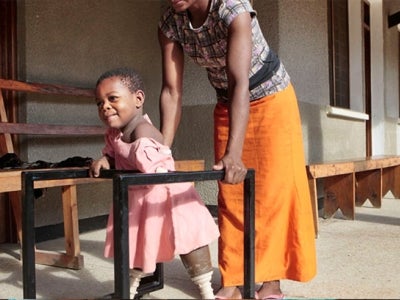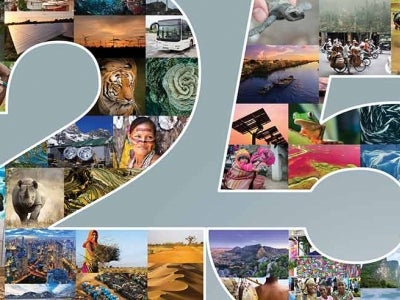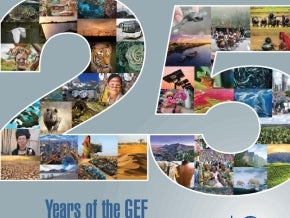
Frog
By Dr. Edgar Gutiérrez Espeleta, Minister of Environment and Energy, Costa Rica
The 25th anniversary of the Global Environment Facility (GEF), is a timely opportunity to celebrate the achievements it has accumulated over these years, and to recognize the impact that its funding contributions have had on our country's sustainable development.
It is also an excellent moment for a critical overview that aims to identify the challenges and opportunities that need to be addressed and incorporated in future projects born of the relationship between the GEF and Costa Rica: without self- criticism, the learning and improvement processes, which guarantee the success and effectiveness of environmental programs, will be lost.
The relationship between the GEF and the Republic of Costa Rica is extensive. Our country has greatly benefited from the GEF's investment in reducing poverty, strengthening governance processes and fighting for equality among our people. With nearly 75 projects implemented in Costa Rica, and an investment of almost $379 million dollars, our country has been able to take proactive action against climate change and land degradation, and execute programs related to the conservation and regeneration of biodiversity.
Over time, we have all developed more experience in these processes, and perceived more clearly the need to integrate more variables in analysis and to develop projects through more comprehensive and dynamic paradigms. Just as once the world decided to overcome the radical approaches of protectionism and mercantilism, it can now move towards an integrated approach that is able to understand and handle complexity and move beyond sectorial silos for a holistic view of sustainable development.
Today’s challenge is to talk about the environment in a comprehensive way, understanding that each problem, each cause, and each solution is absolutely interconnected. If we want lasting and successful solutions, we must start by looking for broader and more ambitious routes, understanding that there are no fragmented parts of the whole. There have been positive results from tackling climate change, land degradation and biodiversity – but it is time to take on increasingly complex global challenges and work within a holistic paradigm, overcoming sectorial siloised approaches.
The concept of resilience expresses the capacity to be aware, deal with vulnerabilities and be able to improve capabilities. We can use this concept, and add elasticity, to sketch out the new financing mechanisms we need for sustainable development.
We are dealing with a huge challenge: managing the assemblage of humans and their natural settings so as to simultaneously conserve the environment and satisfy people's needs. In order to meet this ambitious challenge, middle-income countries like ours need financing mechanisms that are capable of understanding complex realities so as to facilitate solutions; this involves complex thinking but, hopefully, easy solving.
This idea is not as complicated as it seems. The challenge is to respect responsible and sustainable lifestyles and find opportunities in following them rather than to impose old and worn recipes.


